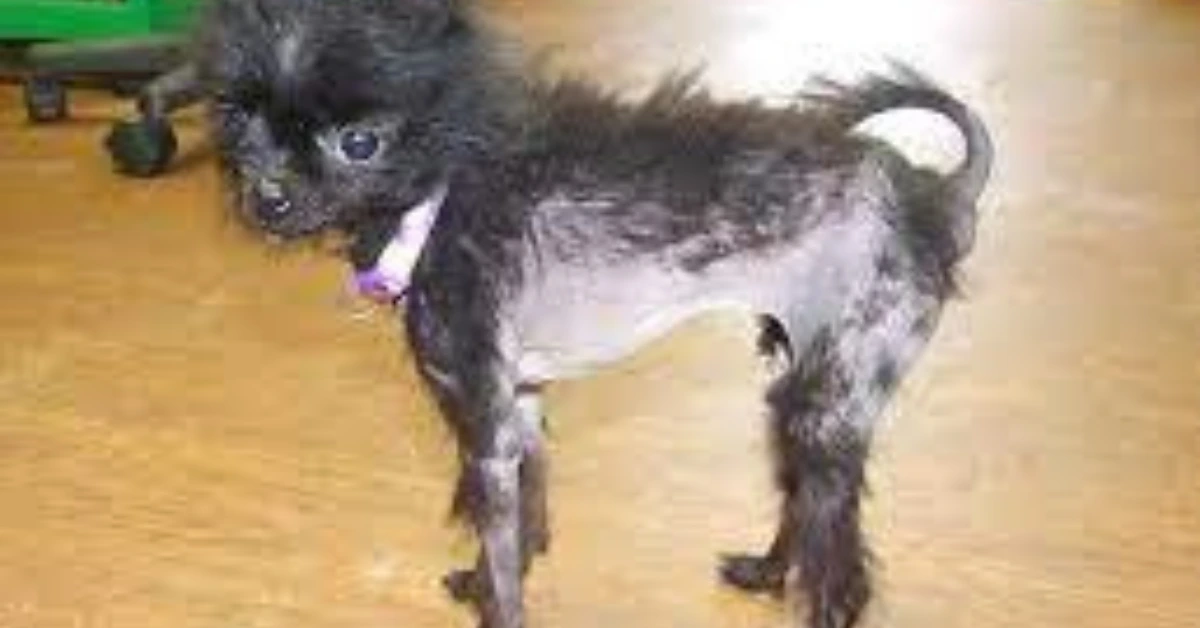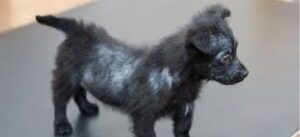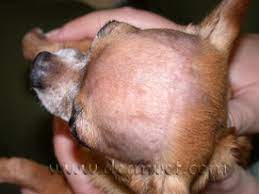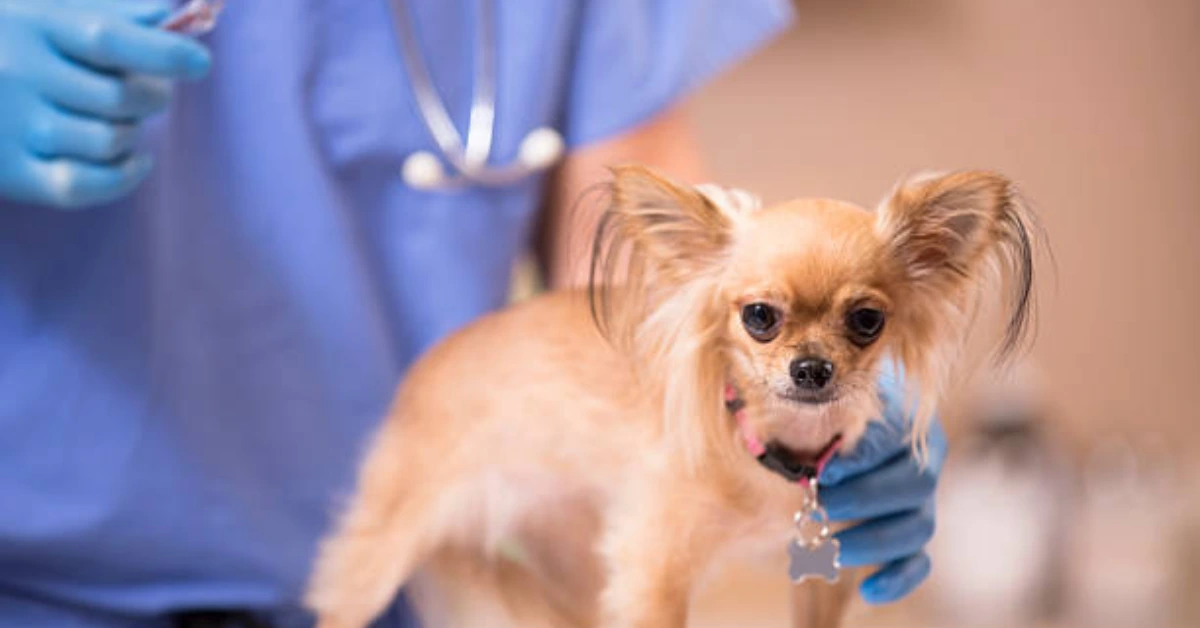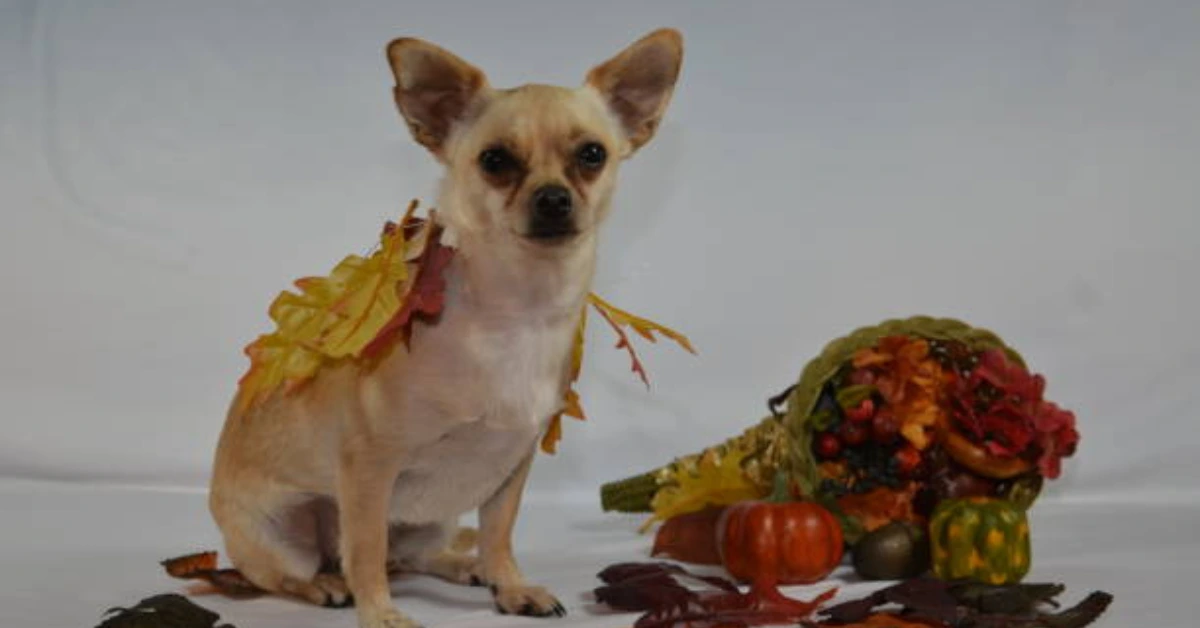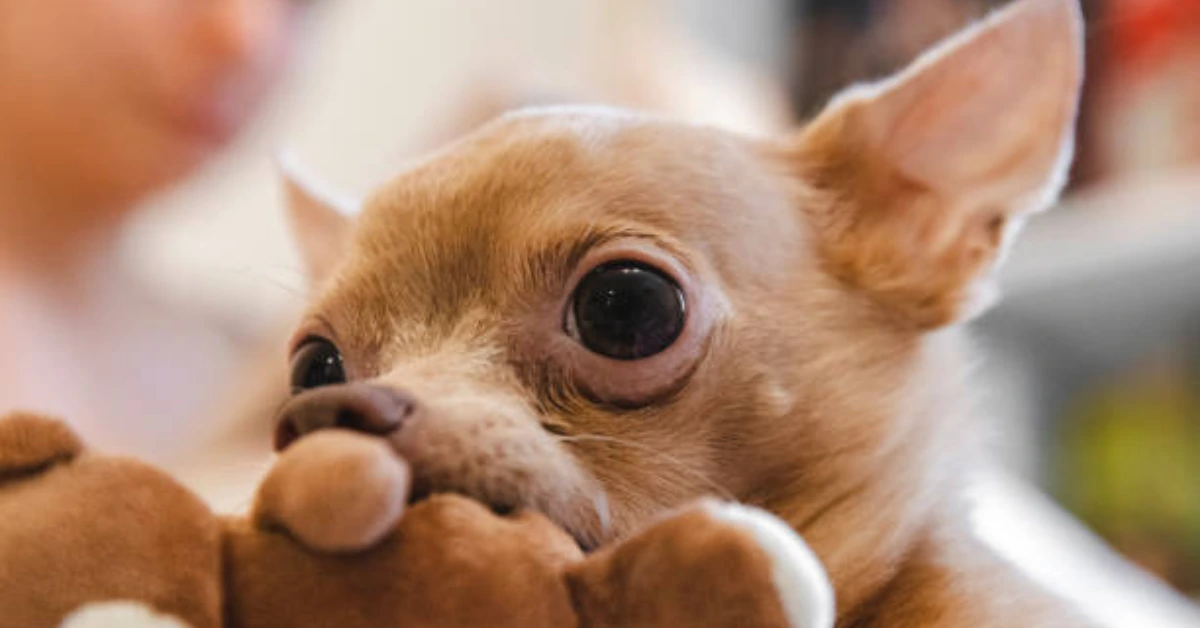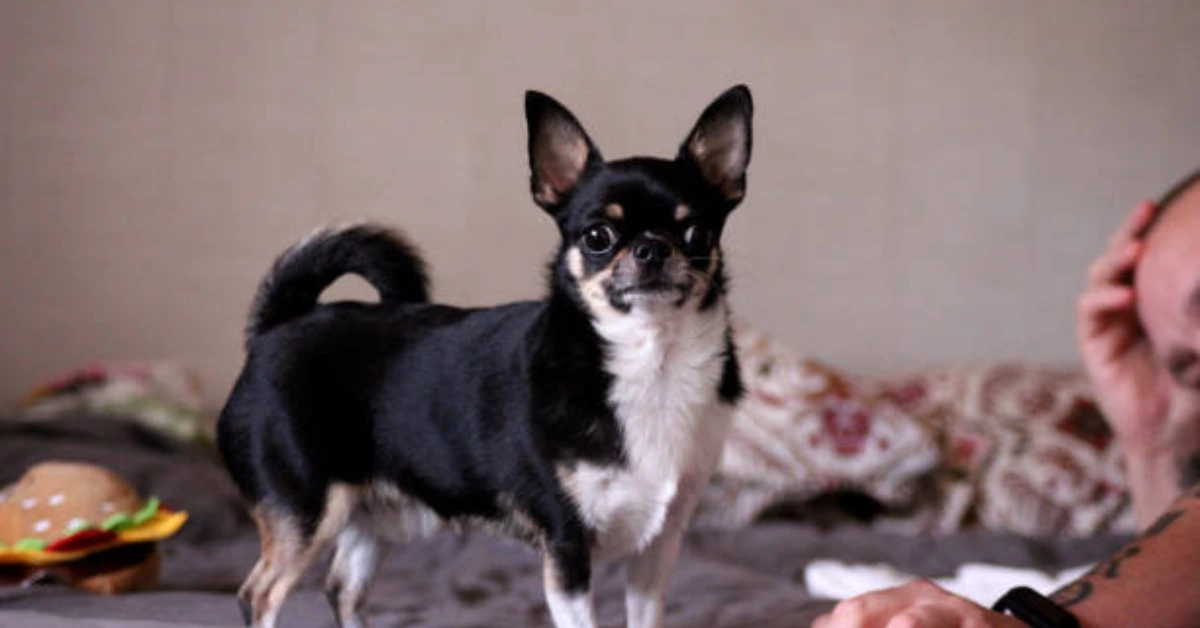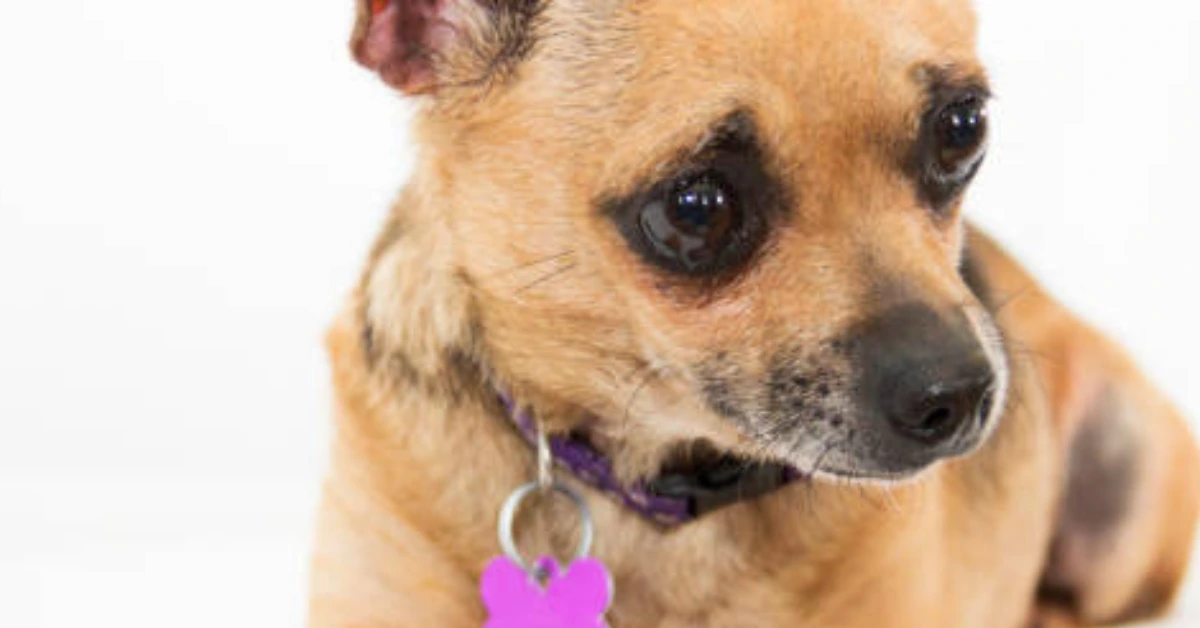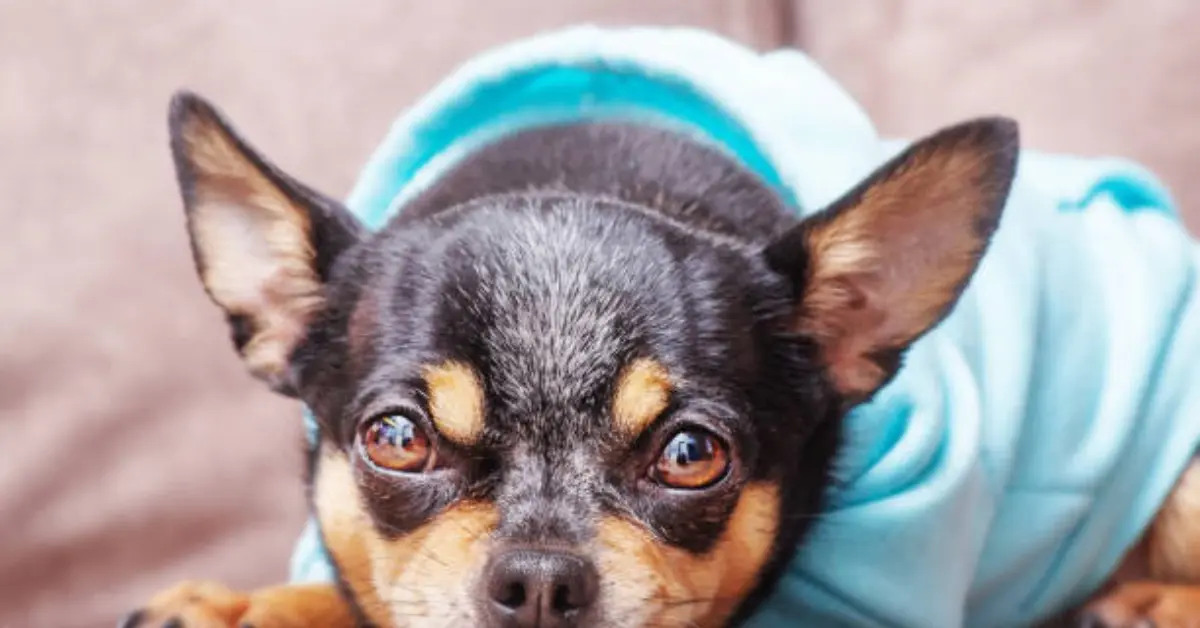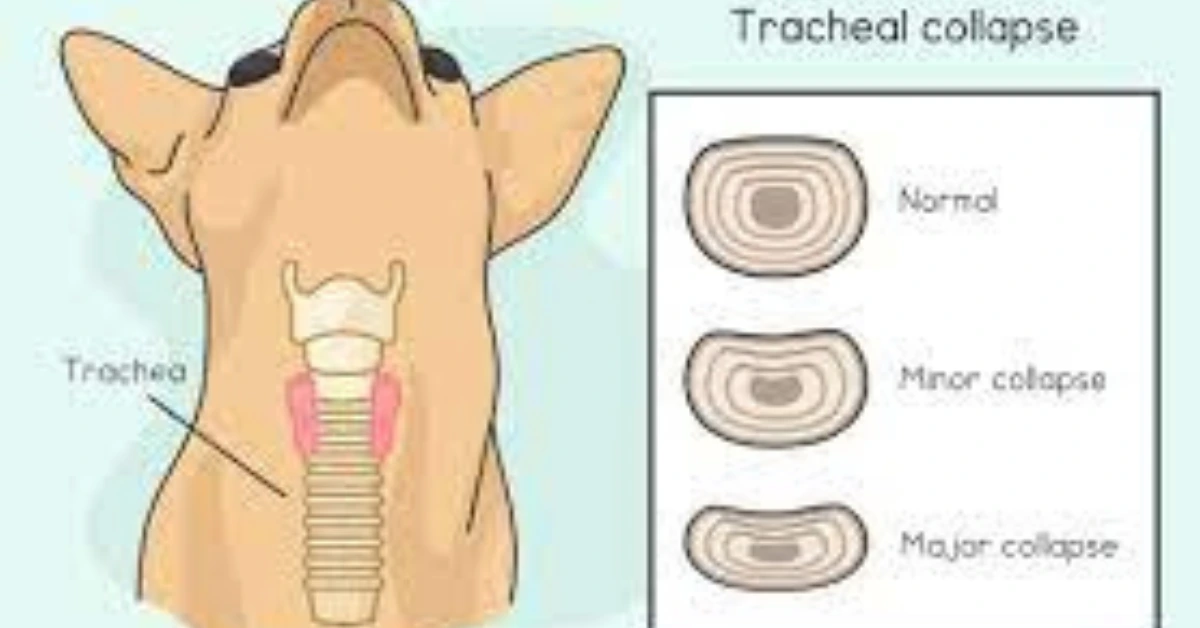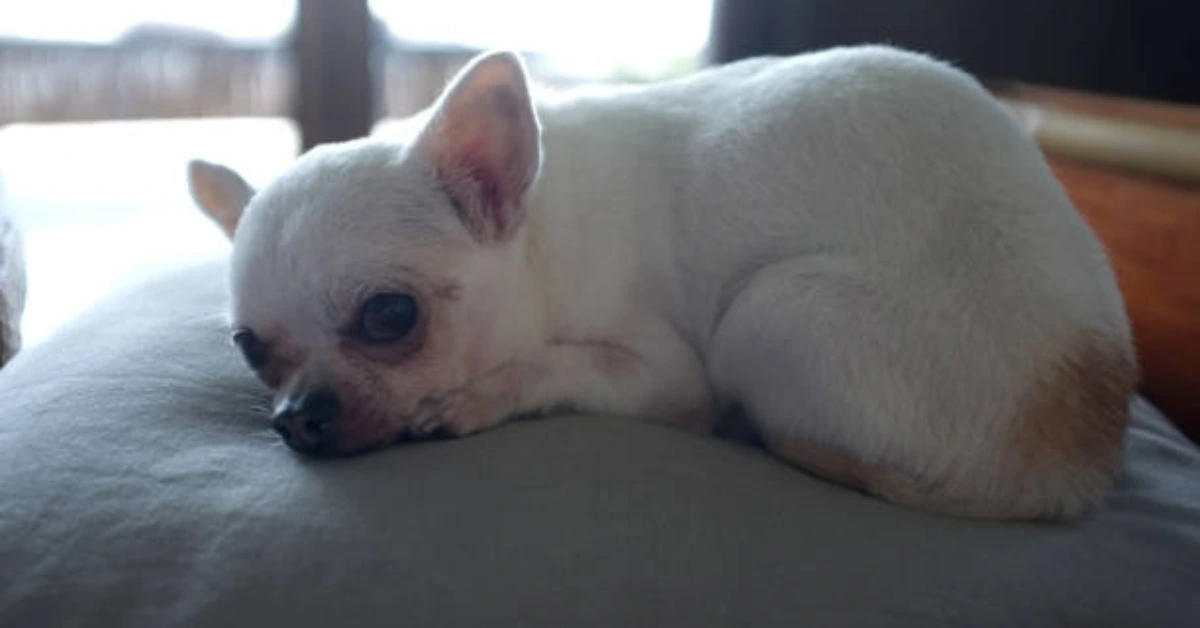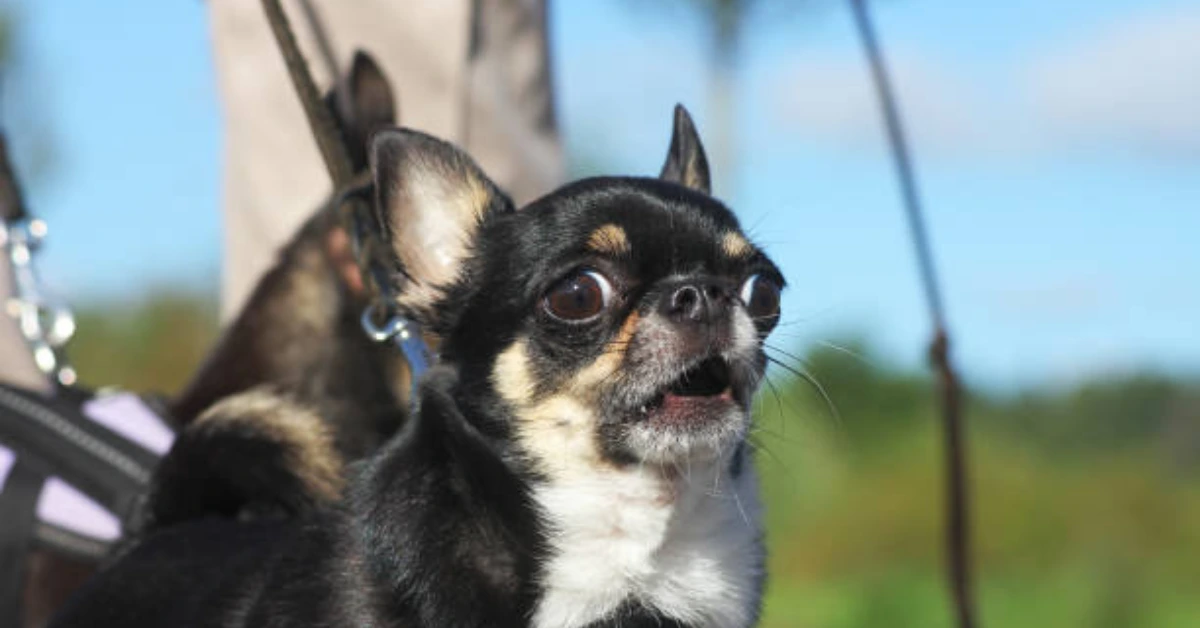The two coat varieties of Chihuahuas, which are cute canines, are long-haired and short/smooth-haired. Regrettably, both coat kinds might have ugly bald patches as a result of mysterious skin issues.
While better skin and coat care may be able to address this issue in some circumstances, it may also be a sign of a more serious underlying issue. Owners of Chihuahuas should therefore keep an eye out for any odd baldness patterns.
What is causing my Chihuahua to become bald?
Chihuahuas may experience modest to severe hair loss for a variety of reasons. Recognize the typical causes that could impact the fur of your cherished Chiwawa.
Advertisement
Alopecia
Alopecia is a benign illness with solely cosmetic symptoms that prevent hair development. After a clip, chihuahuas may also have transient alopecia or bald patches.
But the hair will come back, so owners may be certain that their Chihuahua will soon return to normal with a little perseverance.
An Injury
Chihuahuas can sustain exterior wounds or irritations from glass, thorns, ticks, or even hair strands, which can result in inflammation and hair loss.
In response to swelling and irritation, the affected area may become more inflamed and prone to more infections. This causes hair loss in that location, the same as allergies can cause skin irritation.
If you are unable to treat your Chihuahua’s injury, get expert assistance. The veterinarian may decide to do a quick, painless operation or surgery. Antibiotics may be suggested for your Chihuahua if the injury has caused an infection. But don’t worry—hair should eventually grow back in the damaged area.
Allergies
Allergies are the most common cause of hair loss in Chihuahuas. Chihuahua allergies irritate their skin, causing itching and pain that resembles human allergic reactions.
When a Chihuahua is allergic to something, including pollen, food, surroundings, or insects, it may get uncomfortable and turn to licking, biting, or scratching. In the places that are irritated, this constant scratching may cause hair loss.
Eliminate the allergy trigger and make sure your Chihuahua is vaccinated against any known allergens to successfully manage allergies and avoid itchiness.
Cushing’s Condition
Cushing’s Disease—which is brought on by elevated cortisol hormone levels—causes hair loss in Chihuahuas, especially in their later years.
Both medicine and surgery are options for treating this illness. If you think your Chihuahua may have Cushing’s disease, watch out for symptoms including a bloated belly, excessive appetite or thirst, and frequent urination. You should also schedule a veterinary examination.
Genetic Predisposition
Hair loss in Chihuahuas may be hereditary and inevitable. This kind of hair loss usually appears during the first year of life. You can assess your Chihuahuas’ likelihood of experiencing this by learning about their genetic background.
Even while your Chihuahua’s general health might not be harmed by genetic hair loss, it might be unsettling to see your pet lose hair. To rule out any other possible causes, owners are advised to take their Chihuahuas to the veterinarian.
Infection
Bald patches in Chihuahuas can result from ringworm, bacterial infections, and parasitic diseases including flea bites and mange mites.
These may irritate the skin and result in sores. If your Chihuahua is losing hair in its mouth, ears, or eyes, it may be a sign of mites. Skin that is thick, greasy, irritated, and itching might be caused by mange mites. Antibiotics are needed for severe cases of treatment.
A communicable infection called ringworm causes crusts to form around the affected area and causes hair loss. Any furry area, including the skin and claws, is susceptible to infection and inflammation. Antifungal medications are necessary for treating ringworm.
Hypothyroidism
If a chihuahua’s thyroid gland is unable to produce enough thyroxine hormone, the breed may develop hypothyroidism. Chihuahuas that are deficient in this hormone may experience hair loss and poor coat quality because it is essential for controlling metabolism.
Even while larger and middle-aged dog breeds are more likely to have hypothyroidism, it’s still important to see a veterinarian to rule out this illness as a potential reason for hair loss in Chihuahuas.
Pressure Sores
Pressure sores that result in baldness can occur when a Chihuahua’s joints are exposed to hard surfaces. Bigger breeds are not the only ones affected; elderly Chihuahuas are also vulnerable. This could be the cause if your elderly Chihuahua is losing hair around their bony joints.
Give your Chihuahua a comfortable bed or anything that can protect their joints from rough surfaces to prevent pressure sores for their wellbeing. A recommended course of antibiotics and moisturizers can help treat pressure sores if your dog already has them.
Hives
In Chihuahuas, allergic responses can result in rashes or hives that generate bald patches. Rashes and hives, in contrast to itchy allergic reactions brought on by scratching or licking, need greater care to stop additional hair loss.
If your Chihuahua experiences hives or rashes on its skin as a result of something like a bite, food, plant, chemical, or medication, you should schedule an appointment with a veterinarian right away.
These symptoms usually appear quickly after exposure, sometimes even in a matter of minutes or hours. Furthermore, your Chihuahua may have negative effects including vomiting, fever, tiredness, and loss of appetite.
Chihuahua’s Hair Loss Treatment
If a medical problem causes your Chihuahua to lose fur, following the recommended treatment usually restores the fur to the afflicted area.
At-home remedies can help your Chihuahua’s skin and fur quality, though, if you’re not sure why your dog is losing fur and it’s not due to health problems.
Provide Your Chihuahua Melatonin
The quality and development of your Chihuahua’s fur can be improved by adding melatonin to their diet, but first, see your veterinarian.
Consider giving your Chihuahua 1 mg of melatonin daily to improve your dog’s fur health.
Skin Product
There are many skin care creams and shampoos on the market that can help treat your Chihuahua’s hair loss and sore skin.
If your Chihuahua is not allergic, you can also try natural therapies like oats and coconut oil. These topical treatments will reduce discomfort and improve the quality of the coat.
Omegas
Omega vitamins can help your Chihuahua’s skin and fur get healthy again. It is very important to eat a healthy diet that includes all the nutrients and minerals your dog’s body needs.
Some Chihuahuas lose their hair because they don’t get enough to eat. This can make their skin and hair unhealthy.
Chihuahua Fur Loss Prevention
Dog hair loss can be upsetting for owners, regardless of whether it is hereditary, the result of a medical problem, or something that is readily treated. In the best of circumstances, the symptoms are just visible. You may be asking if there are any preventative steps you can take to stop hair loss in its tracks if you own a breed that is prone to it.
A Healthy Diet
A balanced diet that gives your dog all the nutrients they require, including protein, vitamins, and minerals, is the greatest approach to encourage a strong and healthy coat. Every component of a well-balanced diet benefits their looks in addition to their heart, brain, immune system, and joints.
Grooming
A simple way to maintain healthy skin and coat is to make sure your Chihuahua is regularly brushed, washed, and groomed. To give the coat a luscious gloss and to eliminate dead skin cells, brushing is especially necessary since it distributes healthy oils from the skin throughout the coat.
Brushing is advised for Chihuahuas with long hair every few days. Brushing your pet more frequently can help stop fur from getting all over your furniture throughout the spring and fall shedding seasons! It is recommended to take a bath once a month or as needed.
When To Seek Your Vet’s Advice
If your Chihuahua has bald spots and you don’t know why or if the spots are connected to other signs, you should talk to your vet:
- Skin irritation and the need to scratch
- Bad smell coming from the skin
- Infection or swelling of the skin
- Changes in behavior
- Look for any skin growths on people or other pets in the house.
YOU MAY ALSO LIKE:
Hair Loss Around The Dog’s Eyes, Causes And Caution
hairless chihuahuas- All you need to know
Chihuahua Grooming Guide _Hair, and Nails
Advertisement

